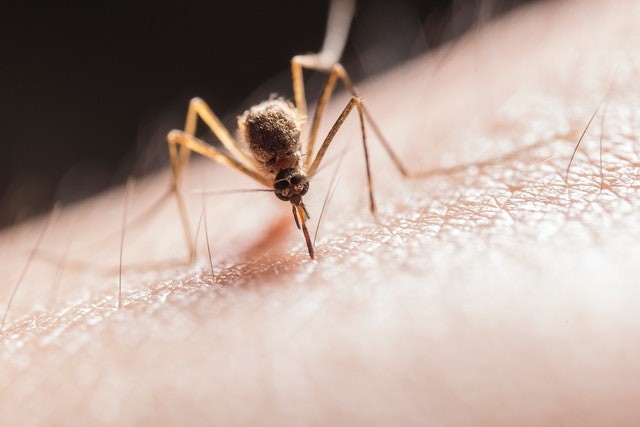Researchers reported in a recently published journal that Zika and dengue viruses change the scent of both mice and humans they infect.
As specified in a EurekAlert! report, the altered scent in attracting mosquitoes, which are biting the host, "drink their infected blood, and then, carry the virus to its next victim."
Essentially, mosquitoes transmit dengue in tropical places worldwide and occasionally in subtropical places like the southeastern United States.
ALSO READ: Invasive Mosquito Species Discovered in South Florida, an Aggressive Biter

A study shows mosquitoes can determine if a person has virus-like dengue or Zika through smell.
Mosquito-Borne Virus
The said virus causes fever, painful aches, rash, hemorrhage, and death at times. Over 50 million dengue cases occur each year, with approximately 20,000 deaths, most of them in children, the National Institutes for Health or NIH National Institute for Allergy and Infectious Disease said.
Zikais another viral disease spread by mosquitoes in the same family as dengue. Even though it is uncommon for the said virus to cause illness in adults, a recent outbreak in South America resulted in severe congenital disabilities in the unborn children of pregnant women infected with Zika.
Meanwhile, Japanese encephalitis, Yellow fever, and West Nile are members of this virus family. Such viruses require ongoing infection in animal hosts and mosquitoes to spread.
If any of these is missing, if all the vulnerable hosts clear the virus, or all the mosquitoes die, the virus vanishes.
Dengue and Zika Viruses, More Attractive to Mosquitoes
A research team from the University of Connecticut Health, Tsinghua University in Beijing, the Institute of Infectious Disease in Shenzhen, and the Yunnan Tropical and Subtropical Animal Disease Laboratory, among others, suspected that dengue and Zika might be manipulating the hosts in certain ways to attract mosquitoes.
Researchers at @uconnhealth are working with a large international team to determine whether or not some viruses, like dengue and Zika, make people smell tastier to mosquitos – and therefore increase the virus's odds of transmission. https://t.co/8jkdUCCvRw
— UConn (@UConn) June 30, 2022
Both general inflammation and malaria can change the scent of people. More so, the researchers thought that viral infection by dengue and Zika might do the same thing.
First, the research team tested if mosquitoes preferred infected mouse models. Indeed, when mosquitoes were provided with a choice of healthy mice or those infected with dengue, the insects were more attracted to the dengue-infected mice.
They then analyzed the smelly molecules on the infected and healthy mice's skin. The study authors could identify various molecules that were typical on infected animals and have them tested individually.
Acetophenone
Skin odorants collected from human patients with dengue exhibited the same thing. Specifically, more attractive to mosquitoes and has more acetophenone production.
Acetophenone, in particular, is made by some Bacillus bacteria that grow on the mouse and human skin. Typically, the skin produces an antibacterial peptide that keeps Baciillus populations in check.
It turns out, though, that when mice are infected with dengue and Zika, they are not producing as much of the antibacterial peptide, and the Bacillus grows more rapidly.
A similar SciTechDaily report said that, according to Wang, the next step is to examine more human patients with Zika and dengue to find out if the skin odor-microbiome connection is, in general, true in real-world conditions and to find out if isotretinoin lessens the production of acetophenone in sick humans, as well as it does in sick rodents.
Related information about mosquitoes that can smell if a person is infected with viruses is shown on F. Perry Wilson, MD's YouTube video below:
RELATED ARTICLE: Mosquitoes Use Color to Find Hosts Resulting in Diseases Including Dengue Fever
Check out more news and information on Mosquitoes in Science Times.


![Extinct Giant Salmon Had Tusk-Like Spikes Protruding Out of Its Snout That Can Easily Kill Shark, Other Large Marine Animals [Study]](https://1721181113.rsc.cdn77.org/data/thumbs/full/53304/89/56/50/40/extinct-giant-salmon-had-tusk-like-spikes-protruding-out-of-its-snout-that-can-easily-kill-shark-other-large-marine-animals-study.png)











